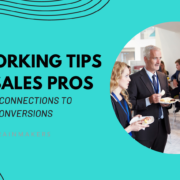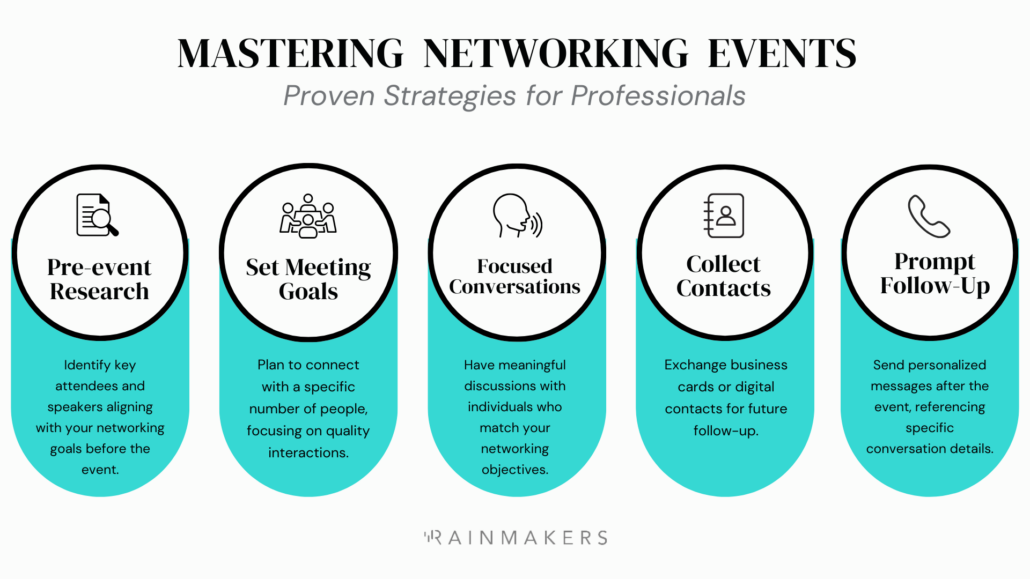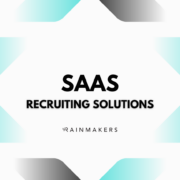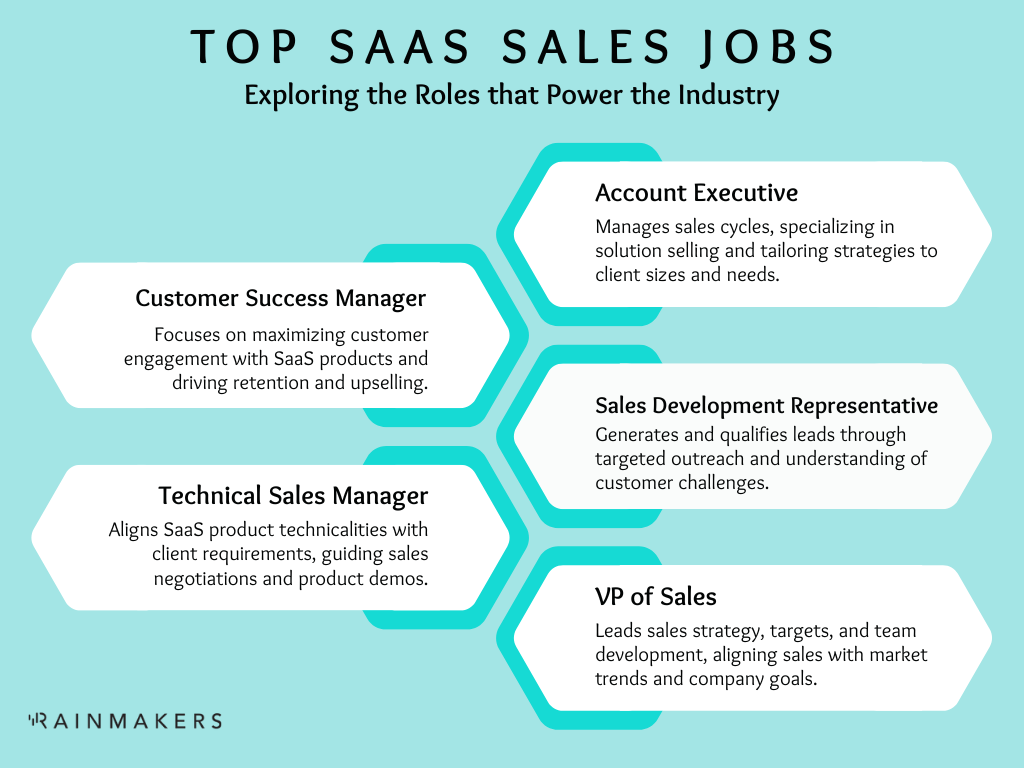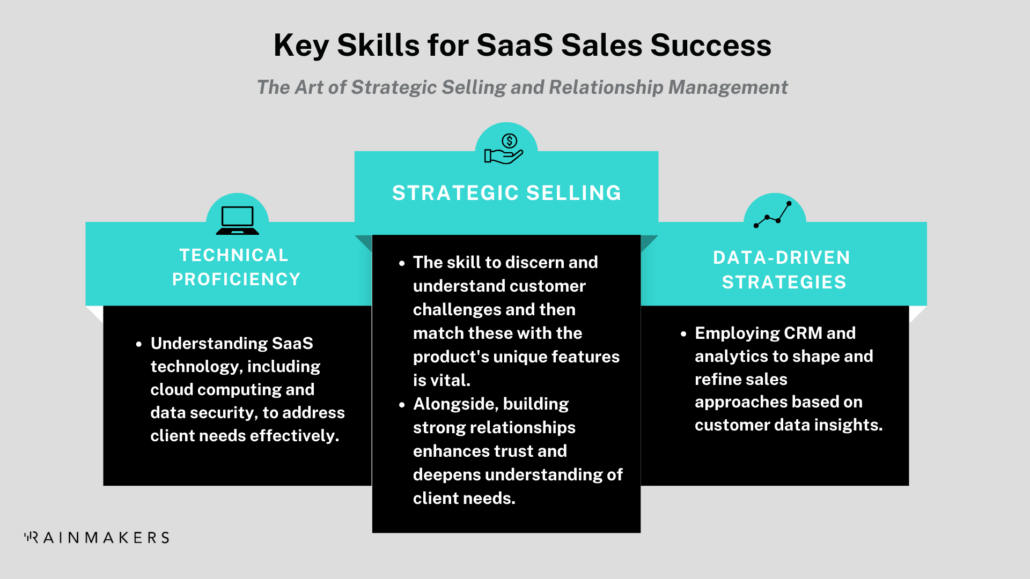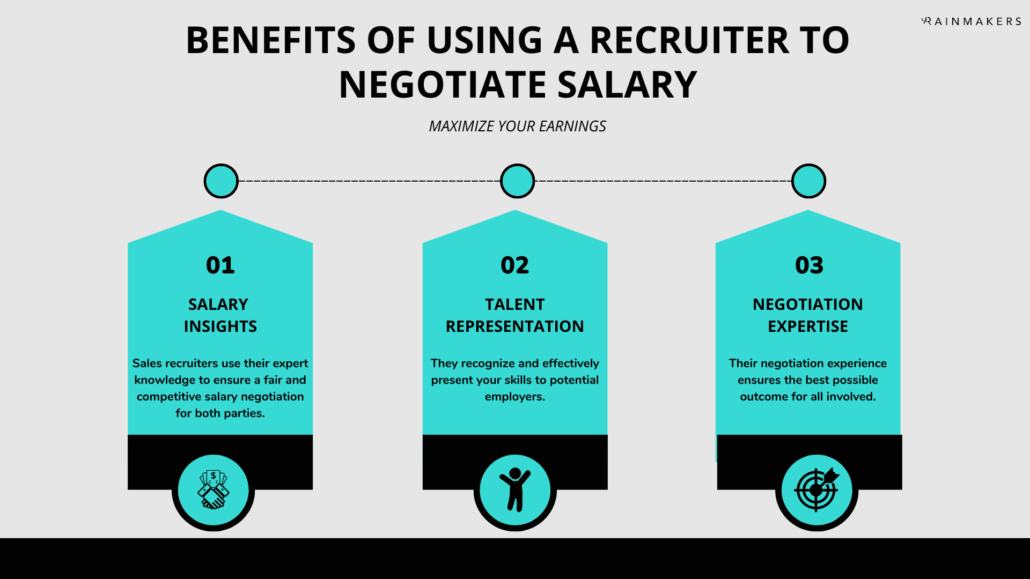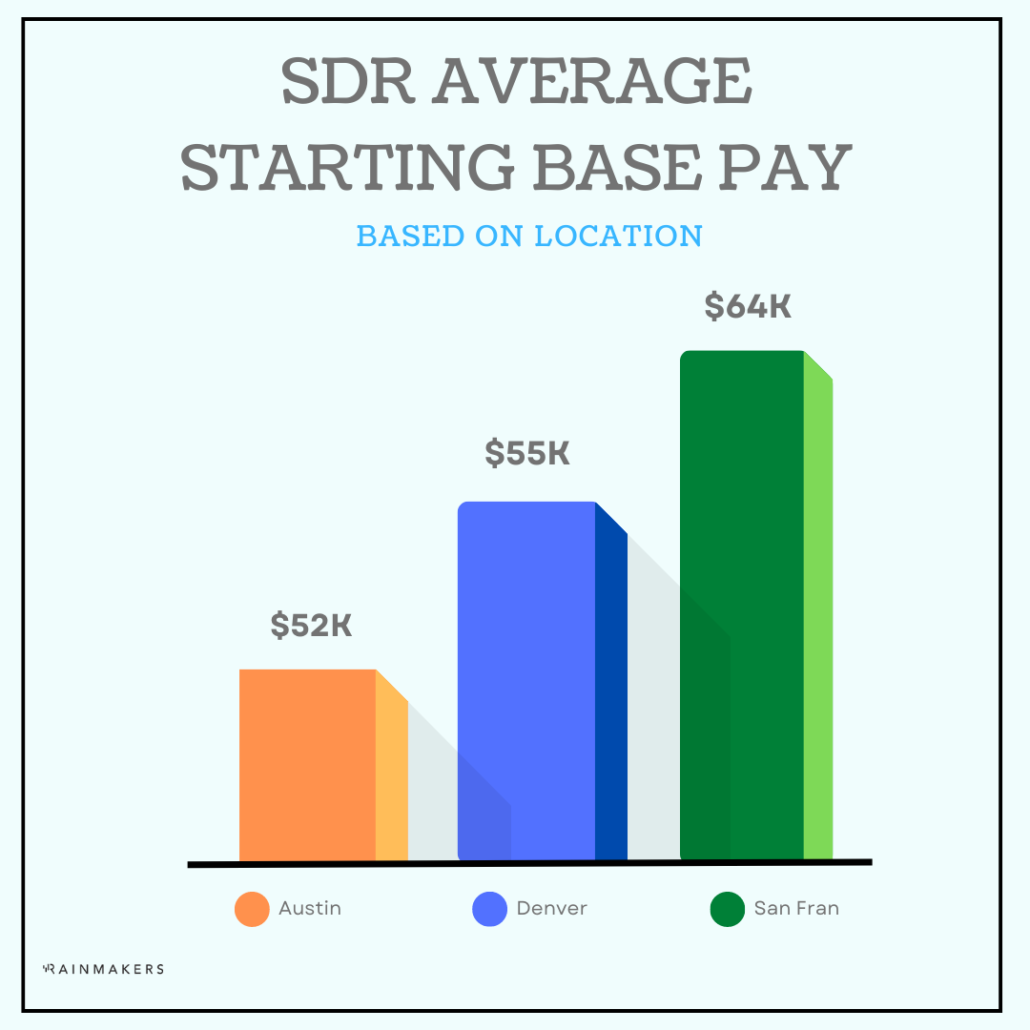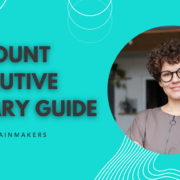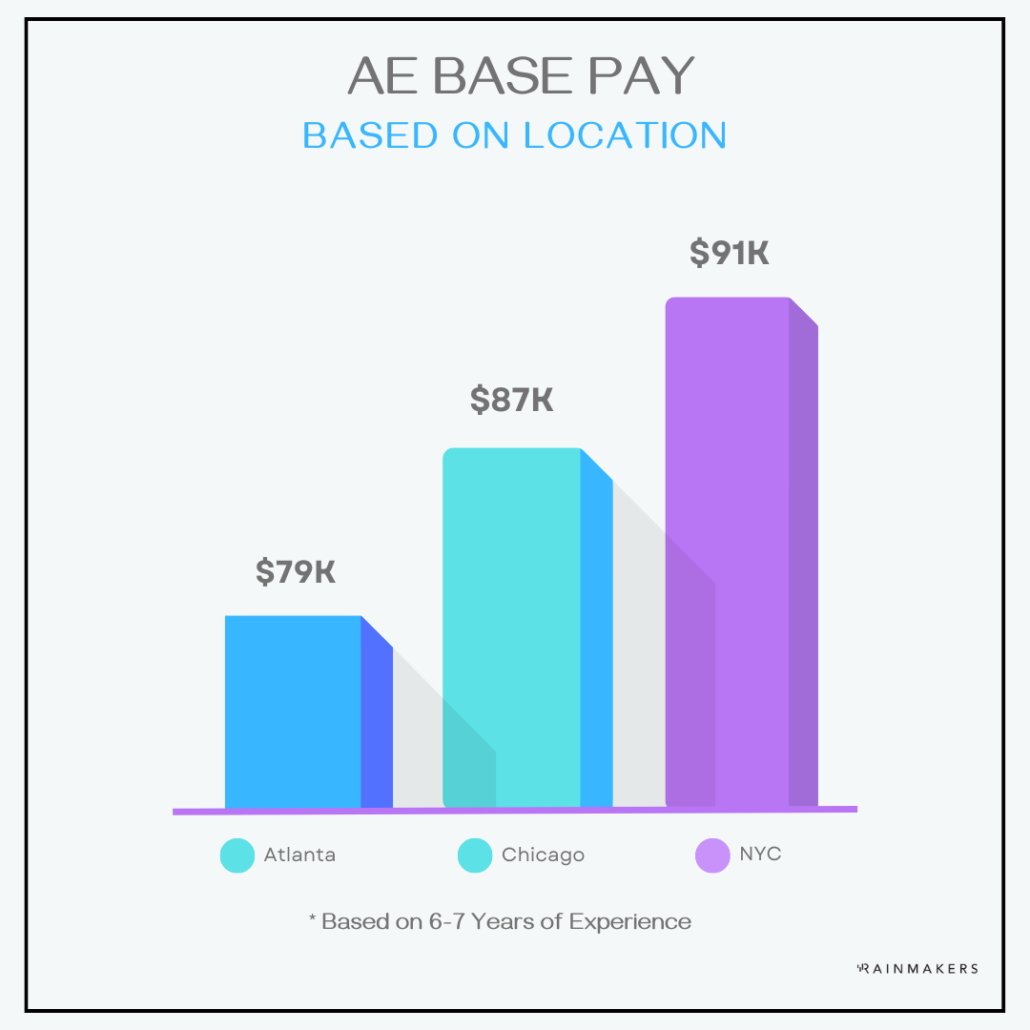Intriguing Careers in Medical Sales
Thanks to new technology over the recent years, medical device sales has emerged as a pivotal and promising career path. The rapidly evolving industry caters to those with a knack for sales and those driven by a passion to make a tangible impact on healthcare outcomes.
Here at Rainmakers, we target companies seeking top talent and individuals considering or advancing in this thriving field.
Medical device sales professionals promote and sell various medical technologies and devices, ranging from basic surgical instruments to advanced diagnostic machinery. These products play essential roles in enhancing patient care and treatment outcomes, making the job of a medical sales rep both critical and rewarding.
Is Medical Device Sales a Good Career?
The allure of a career in medical device sales extends far beyond the attractive compensation packages it is known for. This field stands out for its ability to offer professionals a unique blend of autonomy, impact, and satisfaction.
Those who venture into medical device sales are drawn to the freedom it offers and the meaningful difference their work makes in the healthcare industry. For organizations, hiring individuals motivated by these values is key to fostering a driven and committed sales team that propels product innovation and expands market reach.
Here are other key benefits of working in this industry:
- Top-Notch Pay: Who doesn’t love a good salary and bonus structure? Get ready to be rewarded for your hard work.
- Make a Difference: Your efforts help improve healthcare and touch lives, giving your career a rewarding sense of purpose.
- Freedom and Flexibility: Shape your work life to fit your style. Enjoy the freedom to manage your schedule and work how you want, where you want.

Breaking into Medical Device Sales
Entering the medical device sales industry is rewarding and challenging. Candidates typically need a combination of an educational background in life sciences, business, or related fields and robust sales or clinical experience.
However, a candidate’s network and ability to forge meaningful connections in the healthcare sector truly set them apart. For companies, understanding these criteria is crucial for identifying and nurturing the right talent—individuals who are skilled in sales and adept at navigating the complexities of the medical field.
Earning Potential in Medical Device Sales
One of the most attractive aspects of a career in medical device sales is the potential for lucrative earnings. Salaries vary based on experience, the complexity of devices sold, and geographic location. Total compensation often includes a base salary plus performance-based commissions and bonuses.
This structure incentivizes excellence and rewards those who excel in their roles. Top performers often earn well into the six-figure range. For employers, offering competitive compensation packages is key to attracting and retaining the best talent in this highly competitive field.
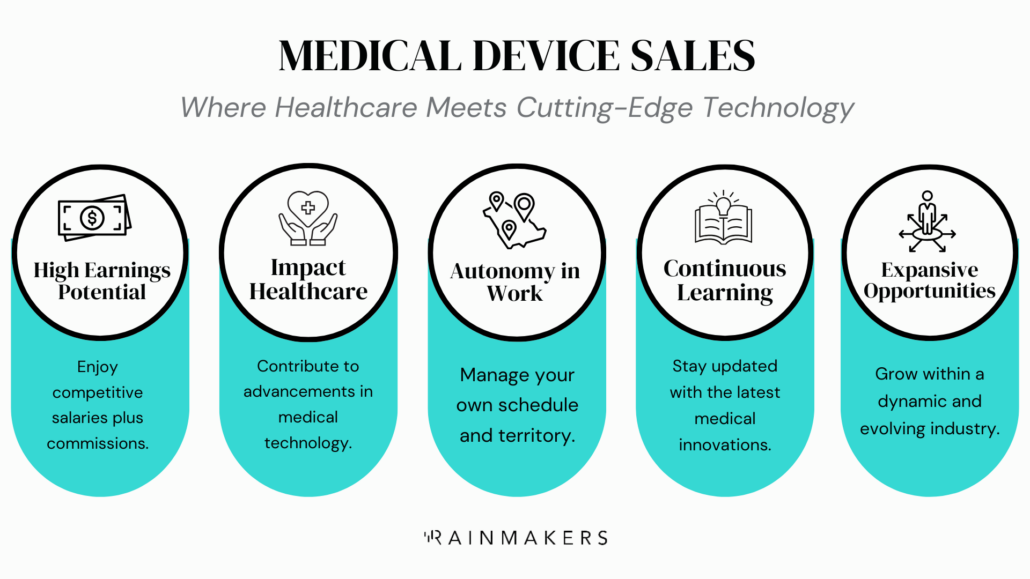
High-Paying Roles Within Medical Device Sales
As the demand for advanced medical technologies grows, so does the need for skilled professionals who can effectively bridge the gap between innovative products and the healthcare providers who utilize them.
These high-paying roles within medical device sales emphasize the industry’s need for individuals who are skilled in sales and possess a deep understanding of the products and markets they serve. For companies, investing in such talent is vital to achieving success in such a competitive landscape.
These roles are critical for companies aiming to secure a competitive edge in the healthcare market, necessitating a focus on attracting top talent.
Dental Sales Representative
- Expertise Required: Profound knowledge of dental products, devices, and treatments, coupled with the ability to establish strong relationships with dentists and dental clinics.
- Financial Rewards: An average annual salary ranging from $61,500 to $74,500, with opportunities for additional commissions and bonuses based on sales performance.
Biopharmaceutical Manufacturing Associate
- Expertise Required: Specialized understanding of biopharmaceutical production processes and regulations, with skills in managing the manufacturing lifecycle of biopharmaceutical products.
- Financial Rewards: An average annual salary ranging from $48,000 to $66,000, reflecting the role’s technical complexity and regulatory responsibilities.
Specialty Pharmaceutical Sales Representative
- Expertise Required: This role requires in-depth knowledge of specific pharmaceutical products and the ability to navigate specialized healthcare sectors. It also demands proficiency in presenting complex information clearly and convincingly to healthcare professionals.
- Financial Rewards: An average annual salary ranging from $38,500 to $62,500, with the potential for significant commissions based on achieving sales targets.

Clinical Support Specialist
- Expertise Required: Deep understanding of clinical applications and the operational use of medical devices within healthcare settings. Professionals in this role typically provide technical and clinical support during surgical procedures or within clinical environments.
- Financial Rewards: Average annual salaries range from $70,000 to $90,000, with variances based on experience and the complexity of the devices supported.
Orthopedic Sales Representative
- Expertise Required: Specialized knowledge of orthopedic devices and implants and the ability to communicate effectively with orthopedic surgeons and support staff. This role often requires staying abreast of the latest orthopedic surgery and rehabilitation advancements.
- Financial Rewards: Salaries for orthopedic sales reps can vary widely but often range from $75,000 to over $150,000 annually, including base pay, commissions, and bonuses.
Cardiovascular Sales Specialist
- Expertise Required: Expertise in cardiovascular devices and treatments, with the ability to engage cardiologists, cardiac surgeons, and hospital staff. Understanding the cardiovascular system and current treatment methodologies is crucial.
- Financial Rewards: The average annual salary for cardiovascular sales specialists can range from $80,000 to $120,000, with top performers earning significantly more through commissions and bonuses.

Medical Capital Equipment Sales Representative
- Expertise Required: Knowledge of selling high-value medical equipment, such as imaging systems, surgical robots, or laboratory diagnostics. This role requires strategic planning and relationship-building with hospital administrators and procurement departments.
- Financial Rewards: Average salaries can range from $80,000 to $120,000 base, with the potential to double that through commissions on high-ticket sales.
Healthcare IT Solutions Sales Executive
- Expertise Required: Proficiency in selling software and IT solutions tailored to healthcare settings, including electronic health records (EHRs), patient management systems, and telehealth platforms. This role demands an understanding of both technology and healthcare operations.
- Financial Rewards: Salaries typically range from $70,000 to $100,000, with significant commission opportunities that can elevate total compensation well into the six-figure range.
Industry Challenges
While the career path in medical device sales is filled with opportunities, it comes with challenges, including the need for extensive travel and the pressure of meeting sales targets. Success in this field requires resilience, adaptability, and a continuous drive for learning.
For individuals, overcoming these hurdles is part of the journey to a rewarding career.
Companies must support their sales team through training, resources, and recognition to foster a motivated and high-performing sales force.

Work With Rainmakers
In conclusion, medical device sales are at the forefront of a changing healthcare landscape, offering job seekers and companies significant opportunities. This career path presents the potential for growth, impact, and financial reward for those drawn to the blend of science, healthcare, and business. For companies, investing in the right talent is pivotal to navigating the competitive marketplace and achieving lasting success.
Rainmakers isn’t just a recruitment platform; it’s your path to success in the competitive medical device sales landscape. Take action now: Job seekers, create your profile to discover new opportunities; Employers, sign up to find and recruit the sales talent you need. Together, let’s achieve remarkable success in medical device sales.






